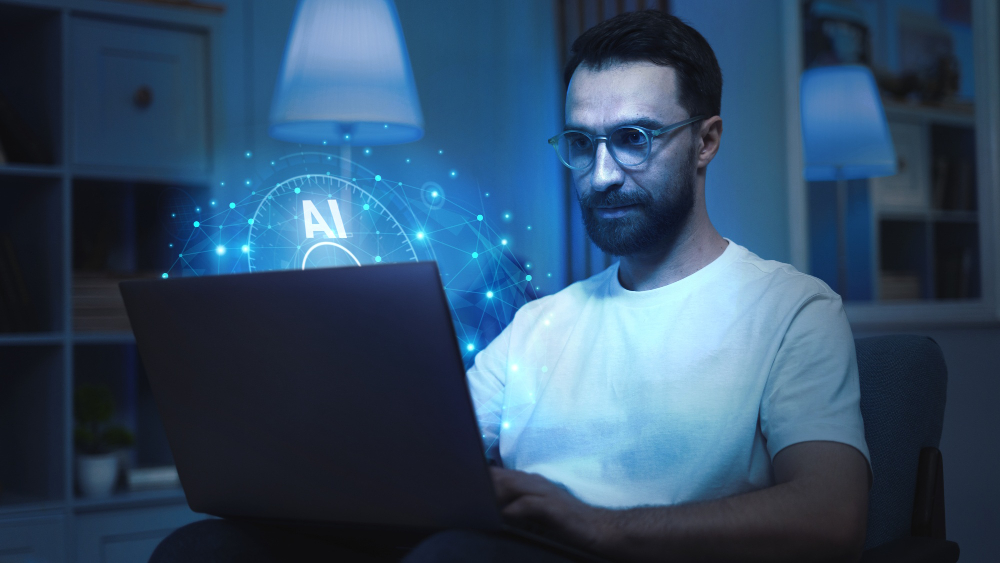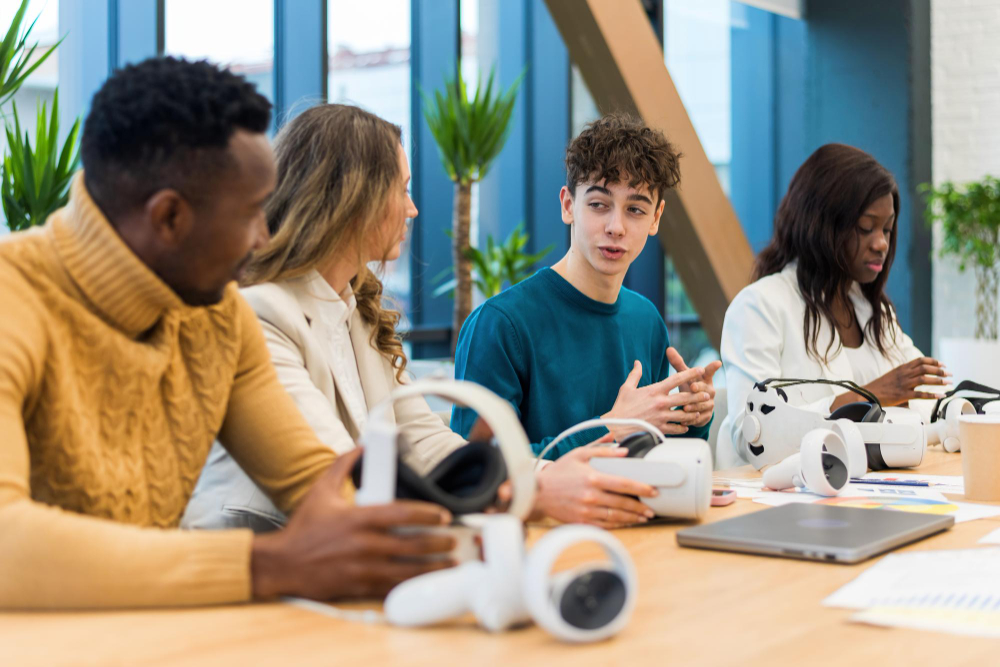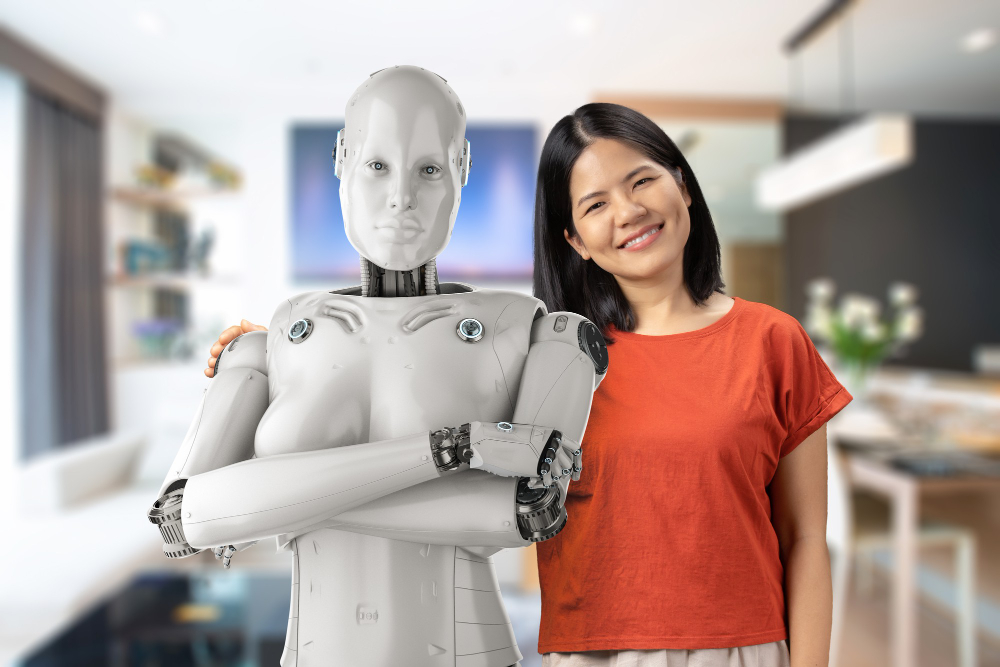
Education has come a long way from the traditional approach of rigid learning systems where every student follows the same path. It’s evolved to accommodate varied needs of students – whether they are in a middle-school classroom or attending a corporate training session.
With Artificial Intelligence (AI) stepping in, learning is becoming more personalized — adapting to each student’s strengths, pace, and challenges. AI isn’t just tweaking the way we learn; it’s transforming it entirely. From real-time feedback to AI-driven tutors, we’re now seeing a shift where education molds itself to the student, rather than the other way around. And the results? A more efficient, accessible, and tailored learning experience.
So, what does this mean in practice? Let’s find out how AI is reshaping personalized learning and why it matters for the future of education.
The AI-Driven Shift in Personalized Learning

For years, educators have tried to personalize learning, but the challenge was scale. How do you tailor education for hundreds, sometimes thousands, of students at once? Traditional methods—like differentiated instruction and individualized lesson plans—helped, but they were time-consuming and difficult to implement consistently.
Now, AI is removing those limitations by analyzing vast amounts of data in real-time, instantly adapting content, and providing predictive insights. A 2023 UNESCO report found that AI-powered learning platforms have improved student engagement by 30% and retention rates by up to 25%. Clearly, this shift isn’t just theoretical—it’s making a measurable difference.
So, what’s driving this shift? AI in learning brings:
- Real-time adaptability – Lessons adjust instantly based on student performance.
- Data-backed insights – AI tracks progress and suggests interventions before students fall behind.
- Scalability – AI can personalize learning for a single student or an entire classroom, making quality education more accessible.
Now, the point to take note here is: This shift isn’t about replacing teachers—it’s about augmenting their ability to teach more effectively.
So, then…
How AI is Making Learning Smarter, Faster, and More Adaptive
It comes down to the three key areas: adaptive tutoring, predictive analytics, and AI-generated content. Let’s break those down.
AI Tutors: Learning Without Limits

A tutor who never gets tired, adapts to your learning style instantly, and is available whenever you need help. That’s exactly what AI tutors are doing today.
These AI-driven assistants help students by:
- Providing instant feedback – No more waiting for graded assignments; AI analyzes responses in seconds.
- Offering 24/7 support – Whether it’s late-night study sessions or early morning revisions, AI tutors are always accessible.
- Adjusting to individual pace – If a student struggles with a concept, AI slows down and reinforces it. If they grasp it quickly, AI moves them forward.
For students, this means a learning experience that evolves with them, making education feel less like a rigid curriculum and more like a guided journey.
But AI doesn’t just assist students—it also helps teachers work smarter. And that’s where predictive analytics steps up.
Predictive Analytics: Understanding Learning Before It Slows Down

Traditional education often reacts to student struggles after the fact—when grades drop or engagement declines. AI, on the other hand, predicts these issues before they become problems.
By analyzing student performance patterns, AI can:
- Identify weak areas early – If a student consistently struggles in algebra but excels in geometry, AI suggests targeted interventions.
- Detect disengagement signs – AI flags when a student’s activity levels drop and helps teachers to step in before motivation is lost.
- Optimize learning paths – Based on strengths and weaknesses, AI recommends personalized study plans.
This proactive approach helps students stay on track and allows educators to intervene meaningfully—not just when a test score signals trouble, but before learning gaps even form.
And when AI combines its predictive power with content creation, the learning experience becomes even more immersive.
AI-Generated Content: Learning That Feels Personalized

Think about how Netflix suggests shows based on your interests. AI-powered learning platforms work the same way—recommending content tailored to each student’s needs and preferences.
For example, an AI-powered system might:
- Generate customized quizzes based on recent mistakes to reinforce weak areas.
- Curate video lessons for visual learners and interactive exercises for hands-on learners.
- Adjust reading materials based on a student’s comprehension level.
This makes learning feel more intuitive, engaging, and effective—as if the system truly understands what the student needs next.
AI’s impact isn’t just theoretical. It’s already being used in real-world classrooms and online learning platforms to make education smarter and more accessible.
The AI Impact is Real in Personalized Learning

AI isn’t just a futuristic concept—it’s already integrated into learning environments worldwide:
- Smart Classrooms – AI-powered platforms provide real-time insights to teachers, helping them adjust lessons on the spot.
- Personalized E-Learning Platforms – AI tracks student engagement and customizes course material accordingly.
- Special Education Support – AI assists students with learning disabilities by offering customized instruction based on their needs.
These examples show that AI isn’t replacing educators—it’s enhancing it, making learning more flexible and tailored to individual students.
AI in Learning: A Partner, not a Replacement

With AI taking on tasks like grading, content recommendations, and learning adjustments, some wonder—will AI replace teachers?
The answer is no. AI is here to support, not substitute.
Teachers bring something AI never can: human connection, empathy, and mentorship. While AI personalizes the learning experience, educators guide, inspire, and motivate students in ways that algorithms cannot.
Instead of replacing teachers, AI is freeing them from repetitive tasks so they can focus on what truly matters—helping students think critically, develop creativity, and build lifelong learning skills.
In Summary
AI is revolutionizing personalized learning, not by replacing educators, but by making education more adaptive, efficient, and tailored to each student’s needs. The way we learn is fundamentally changing.
So, education is evolving—not just for innovation’s sake, but to create a system that finally meets every learner where they are. And with AI leading the way, the future of learning is smarter, faster, and more personalized than ever before.



